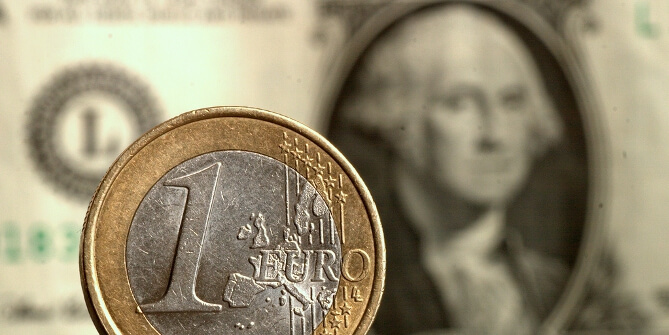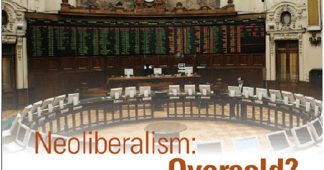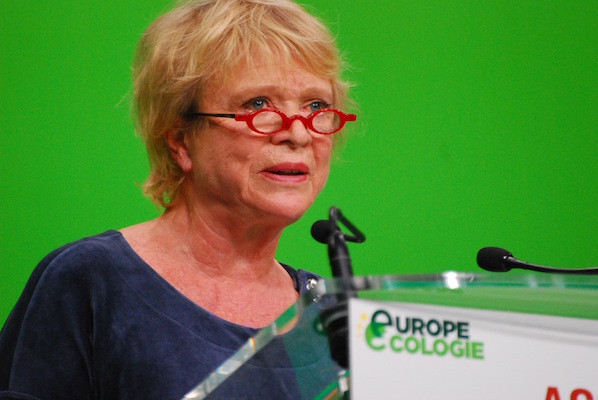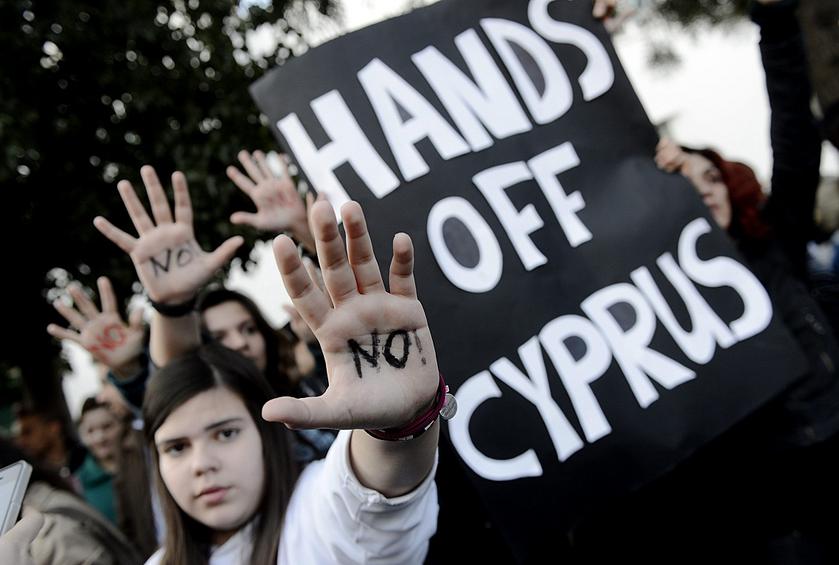By Bill Mitchell
On May 27, 2016, Statistics Iceland (the national statistical agency) released the news – Iceland economy to grow by 4.3% in 2016. The nation is enjoying strong household consumption and investment growth and tourism is driving export growth. Inflation is low and the exchange rate, which depreciated sharply during the crisis, is stable, if not steadily appreciating again. Compare that to the Eurozone Member States, which are in varying states of moribund. We also learned this week that the Icelandic government has increased the intensity of its capital controls and is forcing speculative capital to behave itself. For those who think the state is dead, particularly those on the Left who promote grand (delusional) schemes of a Pan Europe Democracy as the only way of taking on the powers of corporations, Iceland proves that neo-liberalism has to work through the legislative capacities of sovereign states. Corporations do not have armies (usually). They have to manipulate the legislative process in their favour. The currency-issuing state is still supreme – globalisation or not – and the Right know that. The Left have been duped into believing otherwise. That is what has to change before progress is made in restoring some decency to the policy making process around the world.
You can read all about the capital controls policy prevailing in Iceland at present via the Central Bank’s – Capital Accounts Liberalisation Strategy page.
See also – A tale of two economies – Greece and Iceland and Are capital controls the answer? – for further discussion about Iceland.
Further, recent revelations coming out of the IMF demonstrate what a schizoid organisation it is becoming as its hard-core neo-liberal ideology keeps coming up against the brick wall of reality.
The June 2016 (Vol 53, No.2) edition of its in-house journal Finance and Development carried an article – Neoliberalism: Oversold? – which has been attracting attention across the media since it was pre-released last week.
In that article, the IMF authors (who did the earlier research on capital controls referred to above) basically eschewed the notion that self-regulating markets – the catchcry of the free market lobby – deliver optimal outcomes.
They define neo-liberalism as resting “on two main planks”:
The first is increased competition—achieved through deregulation and the opening up of domestic markets, including financial markets, to foreign competition. The second is a smaller role for the state, achieved through privatization and limits on the ability of governments to run fiscal deficits and accumulate debt.
The sort of policies the IMF has been inflicting at great damage for four decades on poor nations and more recently on advanced nations such as Greece.
Now, the IMF authors admit that “the neoliberal agenda … [has] not delivered as expected”, particularly in the area of free capital flows and “austerity” (aka “fiscal consolidation”).
They now reach “three disquieting conclusions” in relation to this agenda:
– The benefits in terms of increased growth seem fairly difficult to establish when looking at a broad group of countries.
– The costs in terms of increased inequality are prominent. Such costs epitomize the trade-off between the growth and equity effects of some aspects of the neoliberal agenda.
– Increased inequality in turn hurts the level and sustainability of growth. Even if growth is the sole or main purpose of the neoliberal agenda, advocates of that agenda still need to pay attention to the distributional effects.
Rather at odds with the mainstream IMF mantra, one would say!
The upshot of these revelations is that:
- They question the benefits and purpose of “short-term international capital flows” and conclude that “capital controls are a viable, and sometimes the only, option when the source of an unsustainable credit boom is direct borrowing from abroad”.
- There is no economic theory about the optimal size of the state despite all the mainstream economists suggesting otherwise – to wit, that a smaller state is better. They just make that up and the statement reflects their ideological bias rather than any authority drawn from theory.
The IMF says that “Austerity policies not only generate substantial welfare costs due to supply-side channels, they also hurt demand—and thus worsen employment and unemployment.”
- “In sum, the benefits of some policies that are an important part of the neoliberal agenda appear to have been somewhat overplayed.”
Memorise those conclusions and shout them from rooftops and at dinner parties when your smug, so-called progressive left mates start talking about the incapacity of the ‘state’ to defend a nation against global capital flows and preach austerity lite!
The government of Iceland has clearly understood who has the power – them and not global capital!
On May 22, 2016, the Icelandic Parliament approved new “steps toward liberalisation of capital controls in Iceland” (Ministry of Finance Press Release).
The new laws – Bill of Legislation on the treatment of króna-denominated assets subject to special restrictions – provided for new measures for dealing with foreign holdings of around 320 billion worth of króna-denominated assets.
To prevent this cash destabilising the exchange rate when the nation reduces the capital controls, the Government has chosen to “segregate the offshore króna assets in a secure manner so that it will be possible to take the next steps towards lifting the capital controls and re-establishing unrestricted cross-border transactions with krónur.”
The assets in question include “deposits, funds held in custodial accounts, bonds, and bills.”
The Government is giving the asset owners a ‘free choice’ – which the Wall Street Journal article (May 27, 2016) – Iceland Puts Freeze on Foreign Investors – said was tantamount to offering a Hobson’s choice.
The Government says that the “owners may hold these assets until maturity. Therefore, no one is being forced to sell offshore króna assets.”
The króna-denominated asset holders will have two options:
- They can take the “clear exit path where all owners of offshore króna assets will be ensured an exit at a specified minimum price.”
This will be achieved by a “voluntary” decision before September 1, 2016 to sell their holdings to the central bank at one of the central bank auctions in return for króna, which the central bank will then exchange into euros at an exchange rate of 210 króna per euro. The rate can drop to 190 króna per euro under certain conditions.
The current market rate is 139.22 króna per euro.
So this protects the official exchange rate but still gives the asset holders the choice of exiting the currency.
- Any funds not exchanged for euro will be forced to invest “in Central Bank of Iceland certificates of deposit” which “do not have a specified maturity date” and will receive an “annual interest rate of 0.5%”.
That is the money is impounded for as long as the government sees fit and receives next to nothing in return.
The new Law demonstrates how a sensible government resists the demands of speculative capital and prioritises the well-being of its own people.
The Minister of Finance said in his press release that the changes “will focus on households and businesses in Iceland”, which is a refreshing alternative to those who always claim that governments have to inflict damage on their people to garner the ‘confidence’ of international capital.
Iceland demonstrates very clearly who is in charge.
Capital controls do not sit well with mainstream economists.
But the controls in Iceland (as in Malaysia in the late 1990s) have certainly helped them stabilise the economy and put it back on a growth footing. The Government is now slowly relaxing the controls as the recovery unfolds.
The conservatives are once again ramping up the argument that foreign investment will dry up, that the government will not be able to fund itself and that the ratings agencies will downgrade public debt and force higher costs onto the government.
I laugh when I read some of the journalistic pieces – in one breath saying that the Icelandic government will not be able to fund itself and the next saying Moody’s will impose higher funding costs onto the government.
The careful decision-making of the Icelandic government has demonstrated that neither is true. It can fund all its domestic programs in króna without recourse to foreign funds. Indeed, it should completely avoid borrowing in foreign currencies.
If the bond markets do not want to invest in Iceland public debt that is their problem – the Government is fully sovereign and can maintain whatever spending program it deems wise in the circumstances.
The central bank governor told the press that their policies would prevent any new waves of speculative capital in the future.
He said of the billions still held up in króna-denominated assets that:
We don’t need the money … These are remnants from the last boom and bust, and we are not going to repeat that mistake.
One of the recurring themes during the Q&A sessions that followed my public presentations in Spain recently related to the future of the Eurozone in 20 or so years given the travesty that the elites are foisting onto their children.
‘Their’ in this context being the ‘royal their’ – clearly their own children are probably safely ensconsed in private schools doing very well with a network of employment opportunities to ease the transition to the labour market.
The point I made on several occasions is that the Euro leadership is severely out of touch with the reality of the situation they have created. What they have now is a disaster on their hands and the costs will linger for generations to come.
An unemployed teenager in Greece or Spain will probably have been unemployed through the entire latter part of their teenage years and have become young adults – with no work experience, limited education and a sense of betrayal.
What is their future and, by definition, the future of their nations looking like? Its gets pretty scary when you think of the legacy that the policy ideology has created.
Iceland is prioritising its youth over the interests of foreign capital. A salutary lesson.
How is Iceland doing then?
Real Wages growing strongly in Iceland
Iceland Statistics reports that Real wages (Nominal wages adjusted for changes in the price of goods and services) initially fell after the crisis and the closure of the banks (by 13.1 per cent between February 2008 and May 2010).
However, once the government intervention stabilised the economy, real wages have grown strongly again and are now (April 2016) 12.8 per cent higher than they were at the peak before the crisis (February 2008).
Compare that the the Eurozone area where real wages overall have only grown by 4.8 between 2000 and 2015. For Greece, real wages have fallen by 14.1 per cent over that period; Spain growth by 6.1 per cent, Italy zero growth and Portugal a decline of 5.1 per cent.
Read the full article here:
http://bilbo.economicoutlook.net/blog/?p=33707











